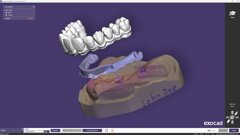DUNDEE, Scotland: As the global health community marks World Mental Health Day today, the dental profession is being urged to confront a pressing concern within its own ranks: the mental well-being of students and practitioners. New research highlights a critical gap in suicide awareness education across dental schools, underscoring the need for systemic change to better equip future professionals for the psychological challenges inherent in dentistry.
World Mental Health Day, coordinated by the World Health Organization, aims to raise awareness of mental health issues and mobilise efforts to improve global well-being. This year, the event focuses upon the urgent need to support the mental health and psychosocial needs of people affected by humanitarian emergencies, a theme also reinforced by the UK charity Mental Health Foundation.
Within dentistry, mindfulness about mental health is a central issue, given the profession’s well-documented exposure to stress, isolation and emotional fatigue. A previous study found that more than one in six dentists in its sample had contemplated suicide within the past year, while nearly one in 18 had attempted it at some point. Persistent workload pressures, regulatory scrutiny and financial strain have all been cited as contributing factors.
While the highly stressful nature of the profession is thus widely known, how dentists can and should respond to patients with serious mental health issues, including suicidal ideation, is more opaque. Investigating this knowledge gap within the context of dental education, a recent study by researchers in Scotland has revealed that dental undergraduates often lack the knowledge and confidence to respond effectively to signs of suicidal distress among patients. The pilot teaching intervention described in the paper was met with positive feedback from students, who reported greater awareness and reduced fear of initiating conversations about suicide. However, the authors noted that such training remains inconsistent across UK dental schools and called for a national, structured approach.
In response, experts advocate for the integration of suicide awareness training and mental health crisis management modules into the undergraduate curriculum. Existing resources, such as the brief online training by the Zero Suicide Alliance, a UK suicide prevention group, offer a foundation that could be readily adapted for dental education. Embedding such initiatives within professional training would not only enhance students’ competence, but also promote a culture of openness and peer support within dental teams.
As the dental community observes World Mental Health Day, it is incumbent upon educational institutions, regulators and professional bodies to act decisively. Prioritising structured suicide awareness education is not merely an academic exercise; it is an ethical imperative. It is essential to safeguard the well-being of those who dedicate their careers to caring for others.
The Scottish study, titled “ ‘It is relevant, it is useful and we won’t be scared to ask’: The response of undergraduate dental students to suicide awareness education”, was published on 12 September 2025 in the British Dental Journal.
Topics:
Tags:
MELBOURNE, Australia: Tooth loss can have a profound impact on social interactions and self-esteem. While poor oral health is known to be associated with ...
BILBAO, Spain: While the systemic health implications of neuropsychiatric disorders are well recognised, their connection to poor oral health—in ...
DUNDEE, Scotland: A landmark UK study has found that stress and burn-out across the dental workforce stem largely from systemic issues, particularly within ...
JÖNKÖPING, Sweden: When young people are placed in care, child welfare services, healthcare authorities and institutional care providers assume ...
AMMAN, Jordan: The rite of passage through university education into the professional world is one that for many students is fraught with tension. ...
Live webinar
Tue. 3 March 2026
8:00 pm EST (New York)
Dr. Vasiliki Maseli DDS, MS, EdM
Live webinar
Wed. 4 March 2026
12:00 pm EST (New York)
Munther Sulieman LDS RCS (Eng) BDS (Lond) MSc PhD
Live webinar
Wed. 4 March 2026
1:00 pm EST (New York)
Live webinar
Wed. 4 March 2026
8:30 pm EST (New York)
Lancette VanGuilder BS, RDH, PHEDH, CEAS, FADHA
Live webinar
Fri. 6 March 2026
3:00 am EST (New York)
Live webinar
Tue. 10 March 2026
4:00 am EST (New York)
Assoc. Prof. Aaron Davis, Prof. Sarah Baker
Live webinar
Tue. 10 March 2026
8:00 pm EST (New York)
Dr. Vasiliki Maseli DDS, MS, EdM



 Austria / Österreich
Austria / Österreich
 Bosnia and Herzegovina / Босна и Херцеговина
Bosnia and Herzegovina / Босна и Херцеговина
 Bulgaria / България
Bulgaria / България
 Croatia / Hrvatska
Croatia / Hrvatska
 Czech Republic & Slovakia / Česká republika & Slovensko
Czech Republic & Slovakia / Česká republika & Slovensko
 France / France
France / France
 Germany / Deutschland
Germany / Deutschland
 Greece / ΕΛΛΑΔΑ
Greece / ΕΛΛΑΔΑ
 Hungary / Hungary
Hungary / Hungary
 Italy / Italia
Italy / Italia
 Netherlands / Nederland
Netherlands / Nederland
 Nordic / Nordic
Nordic / Nordic
 Poland / Polska
Poland / Polska
 Portugal / Portugal
Portugal / Portugal
 Romania & Moldova / România & Moldova
Romania & Moldova / România & Moldova
 Slovenia / Slovenija
Slovenia / Slovenija
 Serbia & Montenegro / Србија и Црна Гора
Serbia & Montenegro / Србија и Црна Гора
 Spain / España
Spain / España
 Switzerland / Schweiz
Switzerland / Schweiz
 Turkey / Türkiye
Turkey / Türkiye
 UK & Ireland / UK & Ireland
UK & Ireland / UK & Ireland
 Brazil / Brasil
Brazil / Brasil
 Canada / Canada
Canada / Canada
 Latin America / Latinoamérica
Latin America / Latinoamérica
 USA / USA
USA / USA
 China / 中国
China / 中国
 India / भारत गणराज्य
India / भारत गणराज्य
 Pakistan / Pākistān
Pakistan / Pākistān
 Vietnam / Việt Nam
Vietnam / Việt Nam
 ASEAN / ASEAN
ASEAN / ASEAN
 Israel / מְדִינַת יִשְׂרָאֵל
Israel / מְדִינַת יִשְׂרָאֵל
 Algeria, Morocco & Tunisia / الجزائر والمغرب وتونس
Algeria, Morocco & Tunisia / الجزائر والمغرب وتونس
 Middle East / Middle East
Middle East / Middle East






































To post a reply please login or register